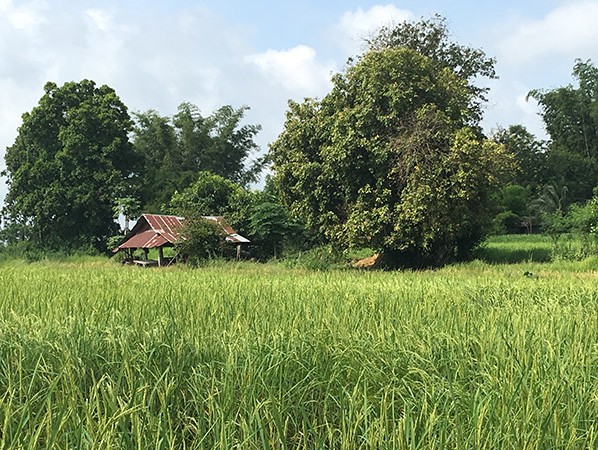
"If Dutch retailers can stimulate rice farmers to apply more climate-friendly methods, the global emission of methane can be reduced by 70%”, says Chris Brown of the international food and agri-business Olam, which provides more than 45 agricultural products worldwide.
In Thailand, a group of rice farmers recently harvested one of the best crops ever. The rice grain is big, compact, and strong – and this is not because the farmers used more fertiliser or better seeds. The excellent harvest is the result of a few simple adjustments in their farming practices. The Thai farmers implemented the adjustments as part of the Sustainable Rice Platform (SRP) launched by Olam and development organisation GIZ. Chris Brown, International Manager Environmental Affairs at Olam International: "Although I'm proud when the farmers tell us what this harvest means to them, I'm also frustrated. Because with this knowledge and a few simple adjustments to their methods, they could have had these yields many years ago".
Chris is convinced that the SRP methods offer the best alternative to reduce the global emission of greenhouse gases in the agricultural sector. Why? "Because rice, with an annual production of 500 million tons, is one of the main man-made causes of the release of methane which, over a period of a hundred years, has an impact that is 34 times higher than carbon dioxide. At the moment, the rice production emits as much CO2 as the whole of Germany. By using the SRP methods to stimulate rice farmers to apply more climate-friendly methods, such as the removal of rotting rice straw after the harvest, we can reduce the emission of methane by 70%."
As the rice that is consumed in the Netherlands only partly originates from small farmers in Asia, the main responsibility seems to lie with the respective governments and agricultural organisations such as Olam. "And we take this responsibility seriously”, says Chris. "Together with government institutions, GIZ, and other organisations, we want to reach 150,000 farmers in Asia and Africa between now and 2023. However, scaling up the process remains necessary. With the climate agreements made in Katowice in mind, I would like Olam, in collaboration with the Dutch retailers, to take action and deal with climate change."
Chris Brown believes that the implementation of SRP as a purchasing standard amongst Dutch retailers is a relatively easy approach to reduce the emission of retail gases in the rice production sector worldwide. This way, Dutch retailers can meet the growing demand for more sustainable products while, at the same time, playing an important role in keeping global warming below the limit of 1.5°C. "Despite the fact that the effects of the rice production on the environment are not as visible as deforestation, it has a huge effect on global warming. When we manage to include the production of rice in the debate on sustainability, it will be a big step towards a positive transformation of agriculture as a whole. SRP offers a good method to bring a more sustainable rice production within reach”, says Chris.
Source: © Vakblad Voedingsindustrie 2019